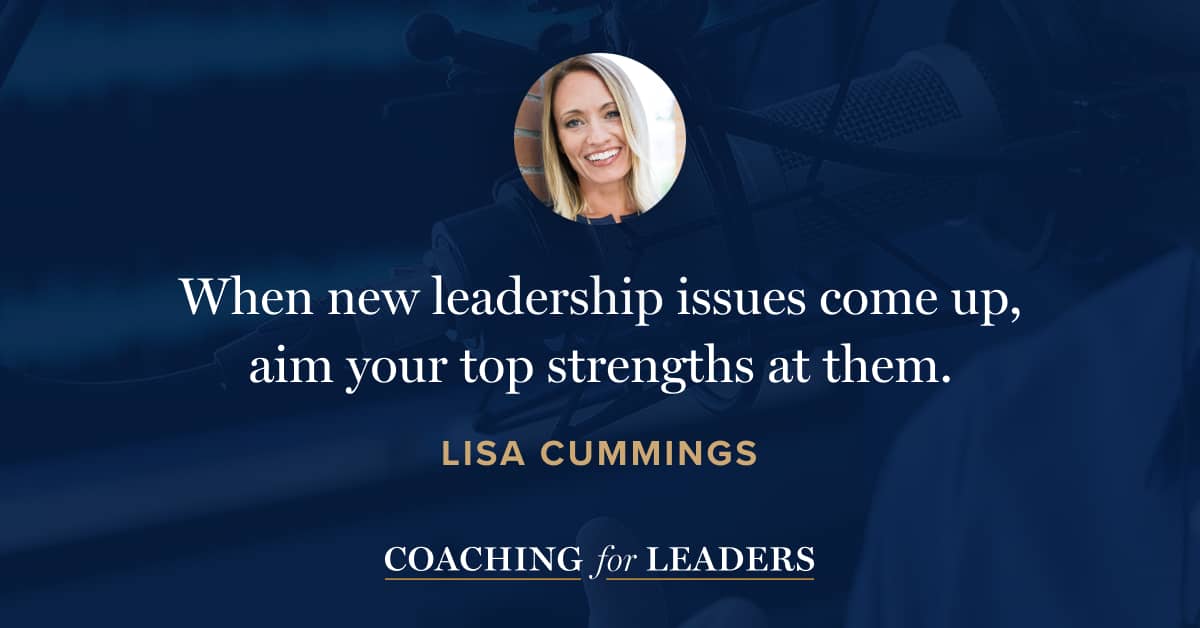Lisa Cummings: Lead Through Strengths
Lisa Cummings is the founder of Lead Through Strengths, a firm supporting building strengths into your team's culture. She's also the host of the Lead Through Strengths podcast. Lisa is a Gallup-certified strengths coach and has trained over 20,000 people in 14 countries. Today, she facilitates offsites and retreats to help leaders and their teams go deep on utilizing their strengths well.
When challenges arise in leadership, we sometimes miss what’s right in front of us. In this conversation, Lisa and I discuss how to zero in on your core strengths and utilize them to address new challenges that arise.
Key Points
- Lisa began her StrengthsFinder journey through the First Break All the Rules book. Dave began his with the Soar With Your Strengths book.
- Many of us value what we’ve worked hardest to achieve, but those areas aren’t typically our core strengths.
- The talents appearing on the bottom of your StrengthsFinder assessment are the approaches that tend to drain you and lead to burnout.
- It’s helpful to focus on removing blind spots. Those are most often hidden in our top strengths.
- When new leadership issues come up, aim your top strengths at them. Often, there’s an opportunity to reframe challenges in the context of your strengths.
Resources Mentioned
- CliftonStrengths (formerly StrengthsFinder) assessment
- StrengthsFinder Talents overview by Lisa Cummings
- Contact Lisa for a question or workshop
Related Episodes
- How Teams Use StrengthsFinder Results, with Lisa Cummings (episode 293)
- Craft a Career to Fit Your Strengths, with Scott Anthony Barlow (episode 424)
- Bringing Your Strengths to a Big Job, with General CQ Brown, Jr. (episode 691)
Discover More
Activate your free membership for full access to the entire library of interviews since 2011, searchable by topic. To accelerate your learning, uncover more inside Coaching for Leaders Plus.





